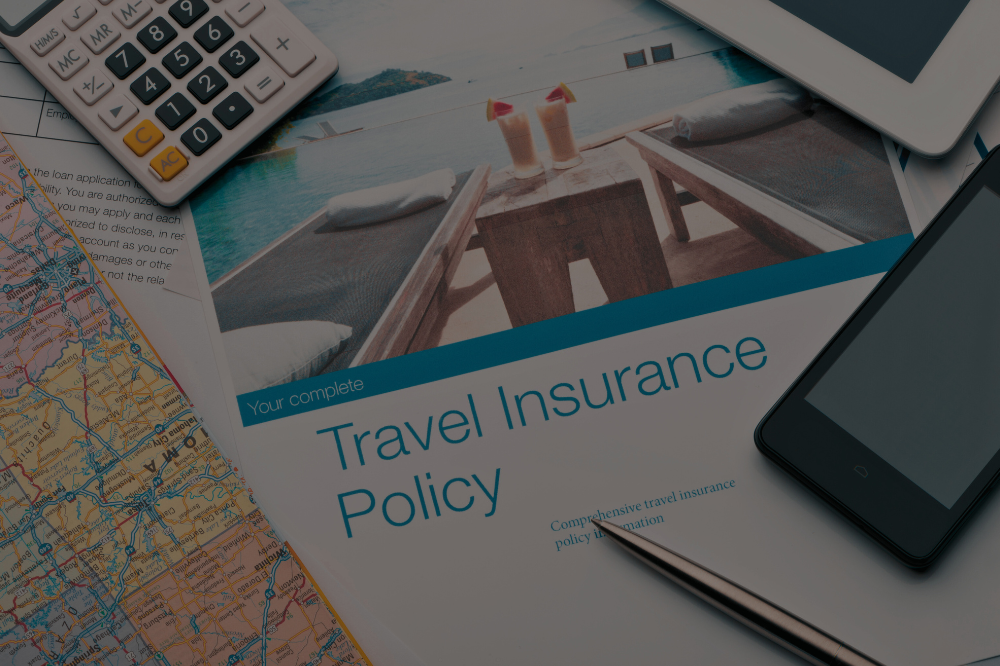Find out what travel insurance covers, the types available, and which one works best for you and your needs!
Travel insurance is an essential safety net for anyone planning a trip, whether it’s a short weekend getaway or a month-long vacation abroad. It offers financial protection from various risks like trip cancellations, medical emergencies, lost luggage, and more.
However, with so many different types available, choosing the right own for your needs can be tricky. So, get to know more about each one before making a decision. Also, if you want to check out more financial tips on our website, you can click on this link!
What is Travel Insurance?
It is designed to cover the costs and losses associated with traveling. It can include various types of coverage that protect travelers from a variety of unforeseen events such as trip cancellations, delays, medical emergencies, lost luggage, and even emergency evacuations. Depending on the policy you choose, travel insurance can provide coverage for one trip, multiple trips within a year, or specialized coverage for activities like cruises or adventure sports.
Common Types of Travel Insurance Coverage
- Trip Cancellation and Interruption Insurance: this is one of the most common and covers non-refundable trip costs if you have to cancel your trip or return home early due to illness, death, weather, or other covered reasons. Some policies may even provide up to 200% reimbursement for trip interruptions. This can be a crucial safeguard if you have paid in advance for flights, accommodations, or activities that can’t be refunded;
- Emergency Medical and Dental Coverage: medical emergencies can happen anywhere, and when you’re traveling, they can be particularly expensive. Most health insurance policies don’t provide coverage when you’re traveling internationally, so having emergency medical coverage is vital. Some plans cover up to $150,000 in emergency medical expenses and include coverage for emergency dental care as well. This is especially important if you’re traveling to remote areas or engaging in high-risk activities;
- Baggage Loss and Delay Insurance: losing your luggage or experiencing delays can ruin a trip. Baggage insurance helps cover the costs of replacing your items if your luggage is lost or delayed. Some policies offer coverage up to $3,000 per person, while also compensating for delays in receiving your baggage;
- Emergency Evacuation Insurance: emergency evacuations due to natural disasters, political unrest, or health crises can be costly, sometimes reaching over $100,000. Travel insurance with evacuation coverage ensures that you can be safely transported to the nearest medical facility or home in the event of an emergency. Some policies offer coverage up to $1 million for emergency evacuations;
- Accidental Death and Dismemberment (AD&D): AD&D insurance provides a payout if a traveler dies or is seriously injured in an accident during their trip. This coverage can be beneficial for individuals concerned about their family’s financial future in the event of a tragic accident.
Other Policies
In addition to common coverages, there are specialized plans designed for specific types of travel:
- Cruise Travel Insurance: cruises come with unique risks, such as itinerary changes, cruise ship breakdowns, and missed ports of call. Cruise travel insurance can protect travelers from these risks and may also cover trip cancellations, emergency medical expenses, and even onboard medical evacuations;
- Adventure Sports Insurance: if you plan to engage in high-risk activities like scuba diving, skiing, or bungee jumping, a standard travel insurance policy may not cover you. Adventure sports insurance provides coverage for injuries sustained during these activities;
- Multi-Trip Insurance: for frequent travelers, multi-trip insurance provides coverage for an entire year, making it more cost-effective than purchasing a separate policy for each trip. It typically covers all the basics like trip cancellations, medical emergencies, and lost luggage for every trip you take within the year.
What Can Influence Travel Insurance Cost?
On average, the costs range between 4% to 10% of the total cost of the trip. For example, if you’re spending $5,000 on a vacation, you could expect to pay between $200 and $500 for insurance. However, specialized plans like cruise insurance or adventure sports insurance can cost more. The cost of travel insurance varies depending on several factors, including:
- Age of the Traveler: older travelers generally pay more for travel insurance as they are considered a higher risk for medical issues;
- Destination: some destinations have higher medical costs, which can increase premiums;
- Length of the Trip: longer trips usually result in higher premiums because the potential for something going wrong increases the longer you’re away;
- Coverage Amounts: policies with higher coverage limits for medical expenses, trip cancellations, and baggage loss will naturally cost more.
How to Choose the Right Coverage
In order to choose the best travel insurance plan for you, you have to do thorough assessment of your travel needs and potential risks. Here are some things to consider:
- Evaluate Your Needs: consider the type of trip you’re taking and the potential risks involved. If you’re going on a cruise, for instance, you may want to invest in cruise travel insurance that covers medical evacuations from the ship and itinerary changes;
- Compare Policies: not all travel insurance policies are created equal, so it’s important to compare plans from different providers. Websites like Squaremouth or InsureMyTrip can help you compare prices and coverage levels;
- Check Existing Coverage: before purchasing travel insurance, check if you already have some coverage through your credit card or existing health insurance plan. Some premium credit cards offer basic travel insurance benefits, though these may not be as comprehensive as standalone policies.

